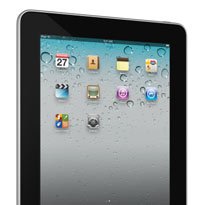NHS England has spent more than £670,000 on iPhones and iPads for staff during its first year in existence.
Health minister Dan Poulter was asked in parliament last month about how many iPads and iPhones have been purchased by his department and non-departmental bodies over the last three years.
The figures show that in 2013, NHS England bought 190 iPads and 1,600 iPhones. The Department of Health bought 25 iPads and no iPhones and Monitor bought 40 iPads and no iPhones.
The Health and Social Care Information Centre bought more than 720 iPhones last year, which would have cost nearly £300,000 at the same price that NHS England pays.
NHS England confirmed to EHI that it paid £380 for each iPhone – down from £485 which it was paying previously – and £385 per iPad.
However, it could only give total spend for the six months between April and October, which was £333,000 on iPhones and £39,000 on iPads. At the unit price provided, this totals £600,000 on iPhones for all of 2013 and £73,000 on iPads.
The organisation also bought 100 iPads and 220 iPhones in 2012.
An NHS England spokesman said the organisation is newly established and geographically dispersed, but needs to work as a single and unified body.
“The provision of appropriate information and communication technology equipment will enable the organisation and its staff to work more effectively, efficiently and securely,” the spokesman said.
“However, as the organisation is new, provision of such equipment will be much higher during the early phase of organisational development.
“Providing staff with ‘secure mobile’ tools that are compatible with our corporate ICT and email systems is essential. ICT equipment is allocated to NHS England staff on the basis of their role and functional needs. As such, there will be a mixture of staff groups using these devices.”
He added that NHS England has developed guidance for managers to determine the most appropriate ICT tools for their staff members.
The organisation also gets improved economies of scale from a procurement, maintenance and support perspective by using standardised equipment..
“IPhone devices are also used as mobile ‘hot-spots’ to allow data connectivity for NHS England laptop users on the move rather than incurring the additional expense of providing dedicated ‘3G’ transceivers for this purpose,” an NHS England statement says.
“The equipment provided supports the NHS England business needs and enables staff to work more in a more agile and flexible way, thereby allowing staff to focus on patient needs and outcomes.”

